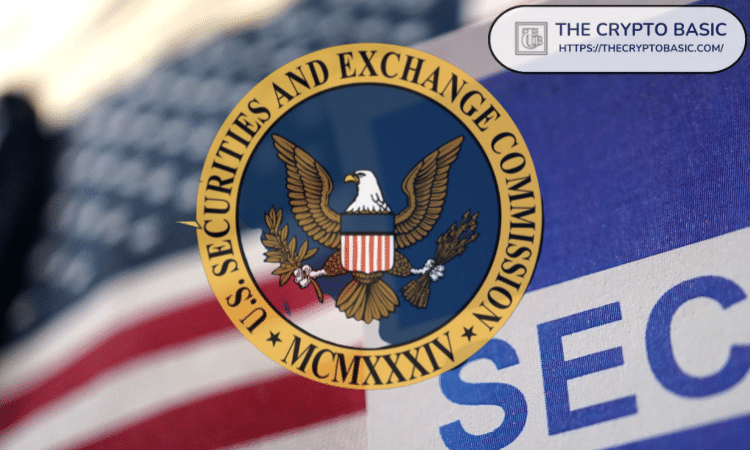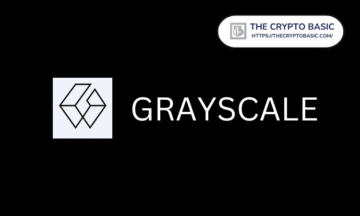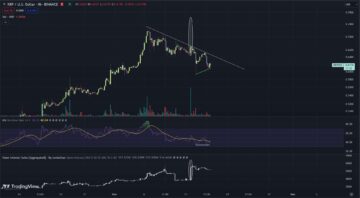
The crypto community has bemoaned the U.S. SEC newly-adopted rules for the crypto industry, which could pose a problem to liquidity providers on protocols like the upcoming XRPL AMM.
The U.S. Securities and Exchange Commission (SEC) on Feb. 6 adopted a set of rules that would mandate liquidity providers to duly register with the agency when dealing with assets considered to be securities or government securities, including cryptocurrencies.
The rules, which passed with a 3-2 vote from the SEC staff, also apply to the decentralized finance (DeFi) sector, with implications for liquidity providers on automated market makers (AMM), according to the SEC’s 247-page document.
It bears mentioning that the U.S. SEC first proposed this set of regulations in March 2022, clearly disclosing an intent to rope the DeFi sector into it. The draft received criticisms from crypto industry leaders, who contended that the decentralized nature of DeFi protocols makes it infeasible.
The recent development suggests an implementation of the rules despite the initial uproar. Based on the new rules, a certain category of liquidity providers on any AMM instance would need to register with the SEC if the assets they are dealing with are considered securities.
This could pose an extra challenge, as even centralized exchanges have had a hard time registering with the SEC due to lack of clarity. For this reason, Coinbase, which the SEC sued last year, has dragged the securities regulator to court, demanding a clear rule-making policy.
SEC commissioner Hester Peirce, who voted against the implementation of the new rules set, questioned who would be required to register with the agency: the individual who writes the software code of the AMM or the individuals who deposit their assets to serve as liquidity providers.
🚨Very important exchange from today’s SEC hearing where SEC staff assert that the new broker-dealer rule will make all LPs in AMMs into securities dealers with a registration requirement. Paraphrase of @HesterPeirce ‘s incisive questioning of staff below: 🚨
Staff:
“AMM is…— _gabrielShapir0 (@lex_node) February 6, 2024
– Advertisement –
The SEC staff, in a rather ambiguous statement, suggested that the individuals who “use the software to deal in cryptocurrencies” would need to register. Peirce argued that the regulatory uncertainty surrounding the crypto industry would make it difficult for actual compliance.
Does This Affect LPs on the XRPL AMM?
The XRP community has especially reacted to the recent move, considering the fact that the XRP Ledger (XRPL) is about to welcome its native AMM.
$XRP trades for 8 years. SEC says it’s a security.
XRPL get NFTs. SEC says they are securities.
XRPL gets AMM. SEC says AMM LPs have to register.
Meanwhile $ETH over there with it’s ICO, disguised whales, links to China, hack scandals, rug pulls… the list goes on… anddddd pic.twitter.com/AKzgcwtDQU
— CryptoArsenal (@_CryptoArsenal) February 6, 2024
This upcoming AMM, ushered in with the passing of the XLS-30D amendment, will allow XRP holders earn passive income by serving as liquidity providers. Besides XRP holders, the AMM feature would also cater to holders of other assets on the XRPL with its multiple instances.
Reacting to the development, pro-crypto attorney Bill Morgan implied that the regulations could negatively impact some entities responsible for liquidity provision in the crypto scene.
“I wonder which entities in the crypto market will be most harmed by this penalising of liquidity provision. Why is the SEC and the vested interests it serves so concerned about liquidity provision. Decentralization of liquidity provision it seems will upset some apple carts,” Morgan remarked in a post on X.
I wonder which entities in the crypto market will be most harmed by this penalising of liquidity provision. Why is the SEC and the vested interests it serves so concerned about liquidity provision. Decentralization of liquidity provision it seems will upset some apple carts. https://t.co/etbgXsNSEq pic.twitter.com/9prSVPXcCy
— bill morgan (@Belisarius2020) February 6, 2024
However, the rule might not impact retail liquidity providers on the XRPL AMM and other AMMs in the DeFi scene. According to the SEC’s documentation, the new regulations do not apply to liquidity providers with less than $50 million worth of assets.
In addition, with XRP’s current status as a non-security, as decided by Judge Analisa Torres last July, the XRP community has pointed out that individuals providing liquidity for XRP might not have to worry about the new rule set.
Other Possible Implications
Attorney Morgan also pointed out some other possible implications of the regulations that are getting less attention from the XRP community. Part of the rules broadens the definition of an exchange to accommodate centralized and decentralized exchanges.
This move would require centralized and decentralized exchanges to register as an alternative-trading system (ATS) or an exchange with the SEC. According to Morgan, this could potentially require that the native XRPL DEX be registered as an exchange.
You forgot the proposed change to the definition of Exchange which could make the XRPL DEX need to be registered as an Exchange or ATS https://t.co/F4Yy7k2Obr pic.twitter.com/fPtKjdkgFf
— bill morgan (@Belisarius2020) February 6, 2024
Moreover, the SEC states that entities that contribute liquidity beyond an incidental level in their regular business activities, will be subject to the regulation. In the latest rule, providing liquidity alone could now be considered dealing activity.
Morgan further pointed to Ripple’s Liquidity Hub, a product from Ripple that aims to assist businesses with their crypto liquidity demands.
The product connects entities with venues to source their crypto liquidity. Attorney Morgan questioned if Liquidity Hub would be affected by the new rule.
Follow Us on Twitter and Facebook.
Disclaimer: This content is informational and should not be considered financial advice. The views expressed in this article may include the author’s personal opinions and do not reflect The Crypto Basic’s opinion. Readers are encouraged to do thorough research before making any investment decisions. The Crypto Basic is not responsible for any financial losses.
-Advertisement-
- SEO Powered Content & PR Distribution. Get Amplified Today.
- PlatoData.Network Vertical Generative Ai. Empower Yourself. Access Here.
- PlatoAiStream. Web3 Intelligence. Knowledge Amplified. Access Here.
- PlatoESG. Carbon, CleanTech, Energy, Environment, Solar, Waste Management. Access Here.
- PlatoHealth. Biotech and Clinical Trials Intelligence. Access Here.
- Source: https://thecryptobasic.com/2024/02/07/sec-adopts-new-crypto-rule-how-could-it-affect-the-upcoming-xrpl-amm/?utm_source=rss&utm_medium=rss&utm_campaign=sec-adopts-new-crypto-rule-how-could-it-affect-the-upcoming-xrpl-amm
- :has
- :is
- :not
- :where
- 11
- 16
- 2022
- 6
- 8
- 9
- a
- About
- accommodate
- According
- activities
- activity
- actual
- addition
- Advertisement
- advice
- affect
- affected
- against
- agency
- aims
- All
- allow
- alone
- also
- AMM
- AMMs
- an
- Analisa Torres
- and
- any
- Apple
- Apply
- ARE
- argued
- article
- AS
- Assets
- assist
- ATS
- attention
- attorney
- author
- Automated
- based
- basic
- BE
- Bears
- before
- below
- besides
- Beyond
- Bill
- business
- businesses
- by
- Category
- cater
- centralized
- Centralized Exchanges
- certain
- challenge
- change
- China
- clarity
- clear
- clearly
- code
- coinbase
- commission
- commissioner
- community
- compliance
- concerned
- connects
- considered
- considering
- content
- contribute
- could
- criticisms
- crypto
- crypto community
- Crypto Industry
- Crypto Market
- cryptocurrencies
- Current
- deal
- dealers
- dealing
- Decentralization
- decentralized
- Decentralized Finance
- decentralized finance (DeFi)
- decentralized-exchanges
- decided
- decisions
- DeFi
- DeFi protocols
- defi sector
- definition
- demanding
- demands
- deposit
- Despite
- Development
- Dex
- difficult
- Disclosing
- do
- document
- documentation
- draft
- due
- earn
- encouraged
- entities
- especially
- Ether (ETH)
- Even
- exchange
- Exchange Commission
- Exchanges
- expressed
- extra
- fact
- Feature
- Feb
- finance
- financial
- financial advice
- First
- For
- from
- further
- get
- gets
- getting
- Goes
- Government
- hack
- had
- Hard
- Have
- hearing
- Hester Peirce
- holders
- How
- HTTPS
- Hub
- ICO
- ID
- if
- Impact
- implementation
- implications
- implied
- important
- in
- incidental
- include
- Including
- Income
- individual
- individuals
- industry
- infeasible
- Informational
- initial
- instance
- instances
- intent
- interests
- into
- investment
- IT
- ITS
- judge
- July
- Lack
- Last
- Last Year
- latest
- leaders
- Ledger
- less
- Level
- like
- links
- Liquidity
- liquidity providers
- liquidity provision
- List
- losses
- LPs
- make
- Makers
- MAKES
- Making
- mandate
- March
- Market
- market makers
- May..
- mentioning
- might
- million
- Morgan
- most
- move
- multiple
- native
- Nature
- Need
- negatively
- New
- new crypto
- NFTs
- now
- of
- on
- Opinion
- Opinions
- or
- Other
- out
- over
- part
- passed
- Passing
- passive
- passive income
- personal
- plato
- Plato Data Intelligence
- PlatoData
- policy
- pose
- possible
- Post
- potentially
- Problem
- Product
- proposed
- protocols
- providers
- providing
- provision
- Questioned
- rather
- readers
- reason
- received
- recent
- reflect
- register
- registered
- registering
- Registration
- regular
- Regulation
- regulations
- regulator
- regulatory
- remarked
- require
- required
- requirement
- research
- responsible
- retail
- Ripple
- Rule
- rules
- s
- says
- scandals
- scene
- SEC
- sector
- Securities
- Securities and Exchange Commission
- security
- seems
- serve
- serves
- serving
- set
- should
- So
- Software
- some
- Source
- Staff
- Statement
- States
- Status
- subject
- sued
- Suggests
- Surrounding
- system
- TAG
- than
- that
- The
- The Crypto Basic
- their
- There.
- they
- this
- time
- to
- today
- trades
- true
- u.s.
- U.S. SEC
- U.S. Securities
- U.S. Securities and Exchange Commission
- U.S. Securities and Exchange Commission (SEC)
- Uncertainty
- upcoming
- ushered
- venues
- views
- Vote
- voted
- welcome
- whales
- when
- which
- WHO
- why
- will
- with
- wonder
- worry
- worth
- would
- X
- xrp
- xrp holders
- XRP Ledger
- XRPL
- year
- years
- zephyrnet












